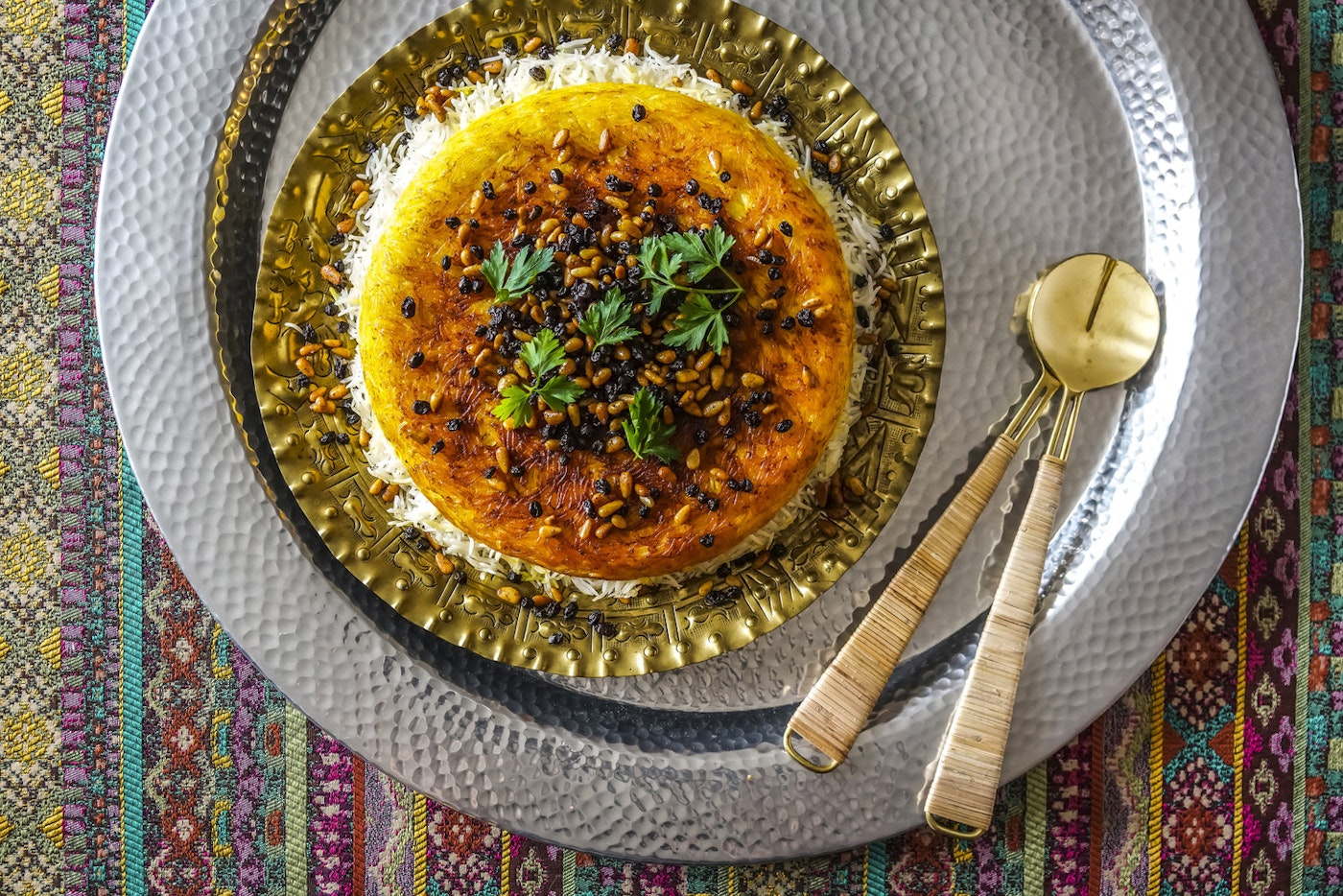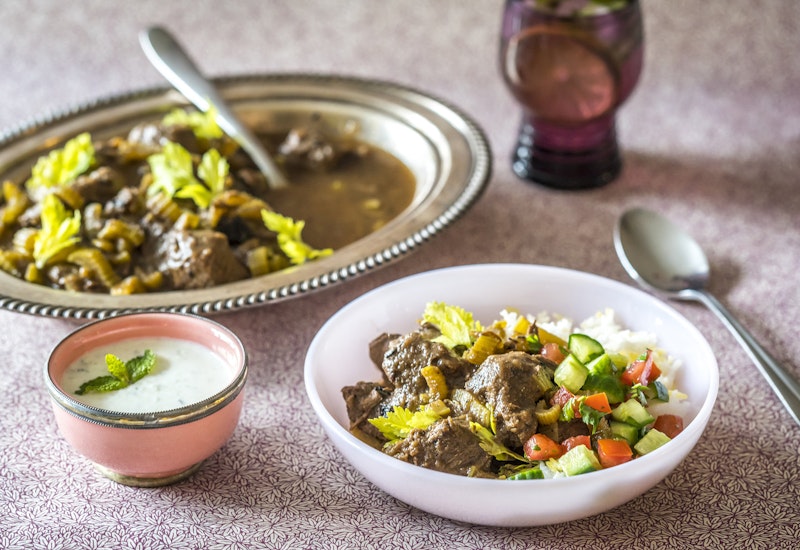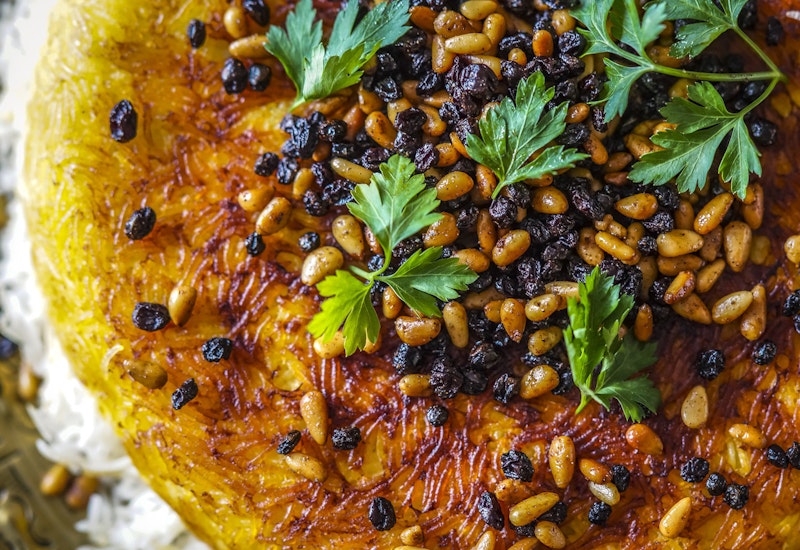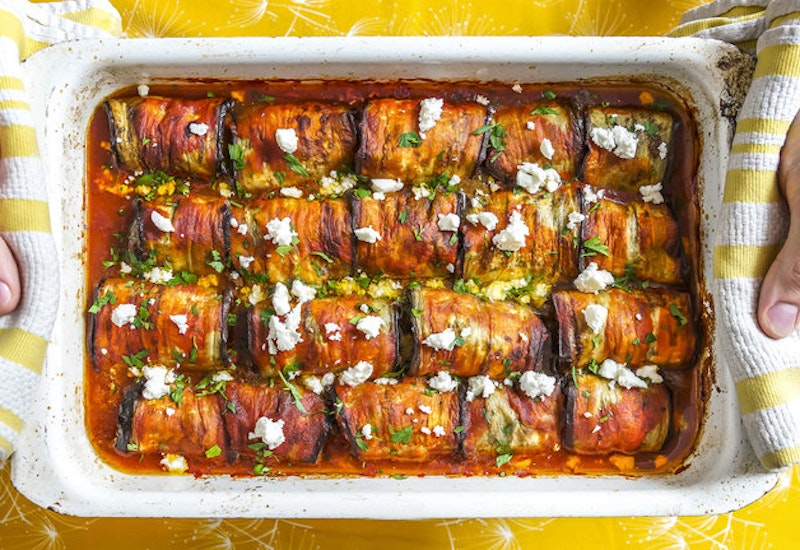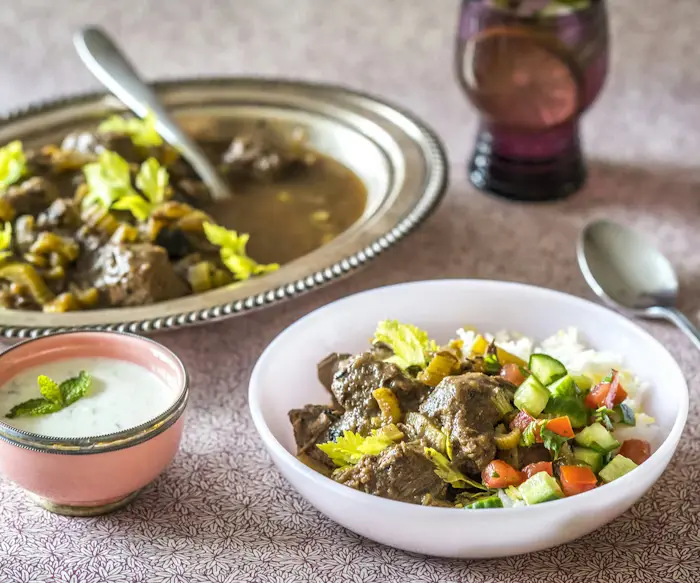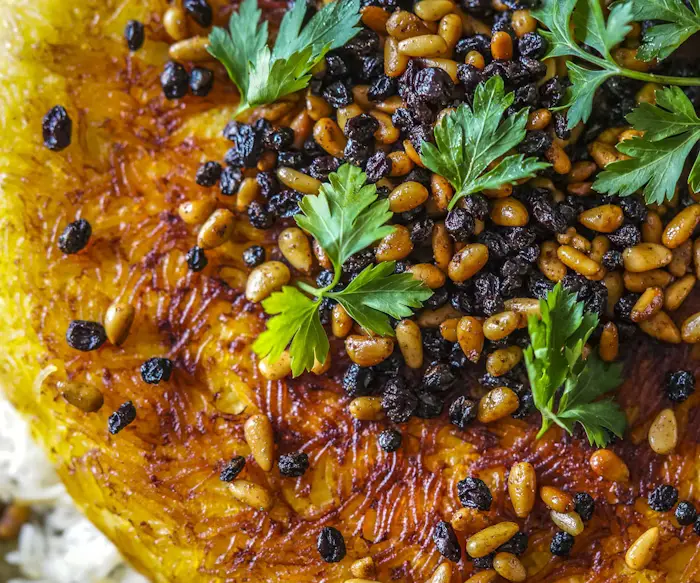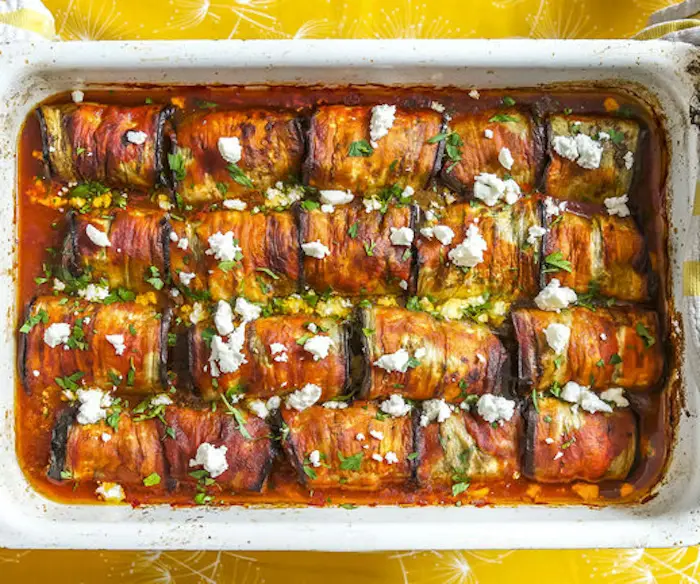“Growing up in Iran we all lived in a couple of blocks away from each other,” explains Robina Shapiro, the mother-in-law of Jake Cohen, a food writer and a recipe tester for the Jewish Food Society. “I never remember my mother cooking just enough for the family.” If her mother was driving by her grandmother’s home, she might honk the car’s horn and be invited in for a meal. “Everybody cooked everyday,” she explains. “My dad never ate leftovers.”
The family cooking became an amalgam of influences learned from hopscotching between Iraq, Iran, and Israel. In the 1940s, Iraqi Jews, who trace their community back to the 6th century BCE, experienced a wave of persecution, most notably in the 1941 Farhud, or pogrom. In the aftermath, the community and families fractured. Many members of older generations moved to Iran, while “the younger generation, who were more adventurous, wanted to go volunteer in the Israeli army,” she says.
Robina’s parents were among them. They joined the Israeli army, but, for “most of these people, including my parents, life was not as wonderful as they thought it would be,” Robina adds. Two years after she was born in 1953, her parents moved to Iran to live near her grandparents.
They joined a community that was born out of the migration, that blended Iraqi and Iranian traditions, linguistically and culinarily, explains Robina. Farsi and Judeo-Arabic from Iraq were used interchangeably. And, the recipes of the community started to shift as they settled into life in Iran.
“The core of the recipes are very very similar,” she explains, but there were notable differences like rice preparations. In Iraq, it was colored with turmeric, and scented with earthy cumin and cardamom. In Iran, a boyfriend’s mother introduced Robina to saffron, which is used to make some of the cuisine’s most celebrated rice dishes.
Put another way, by Jake, “These cultures have been like a sponge, absorbing these ingredients and dishes and creating this hybrid cuisine.”
Khoresh e karafs, a sweet and sour beef stew made with celery, entered the family’s culinary canon in Iran as well, while dolmeh, or stuffed vegetables, were made in the Iraqi tradition by Robina’s maternal grandmother using parsley and pine nuts.
From a young age, Robina helped her mother in the kitchen making these dishes, preparing them on her own from memory by the time she was was a young teen, she says. She took them with her as her family moved back to Israel, and she ultimately moved to Turkey, Switzerland, and finally the U.S. Both she and her mother were “good about having a feel for food,” Robina says. “So, I never really wrote anything down.”
And no one asked her to, until Jake entered the family as her son Alex’s boyfriend and more recently his husband. Only a few months into dating, a large package from Amazon arrived for Jake from Robina. It contained a Persian rice cooker and a copy of the “Food of Life: Ancient Persian and Modern Iranian Cooking and Ceremonies,” by Najmieh Batmanglij, a bible of Persian cooking. It’s a common care package in the community, Jake explains, gifted by mothers to the partners of their children to help them learn the recipes their children love most.
Despite his Ashkenazi roots, Jake took to the recipes quickly, making ghormeh sabzi, an herbaceous stew, yogurt sauce, and a shirazi salad for a dinner where he was introduced to Alex’s greater family. Most of the guests extended him a compliment to the chef in Arabic. “And then [Robina] takes a bite,” Jake recalls and jokingly cursed him saying, “this is better than mine.” Since then, she has taught him to make her recipes like the ones she shared with us.
Cooking is one of the ways that Robina and Jake have found a deep connection. Gay relationships aren’t always widely celebrated in the community, but the family has openly embraced theirs, Jake explains, largely because of their cooking and his passion for their culture. “It’s been this incredible way for me to get closer to the family.”
